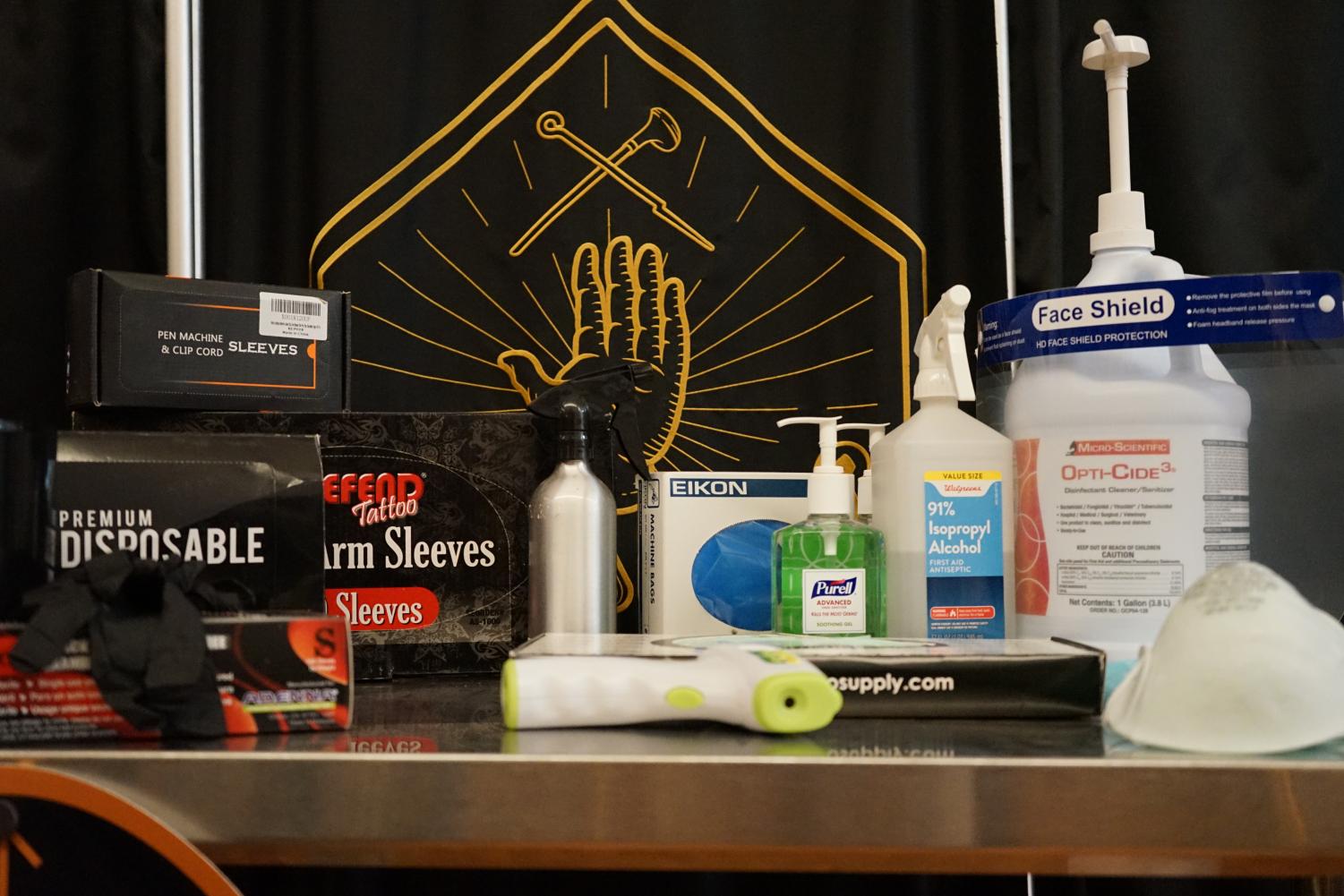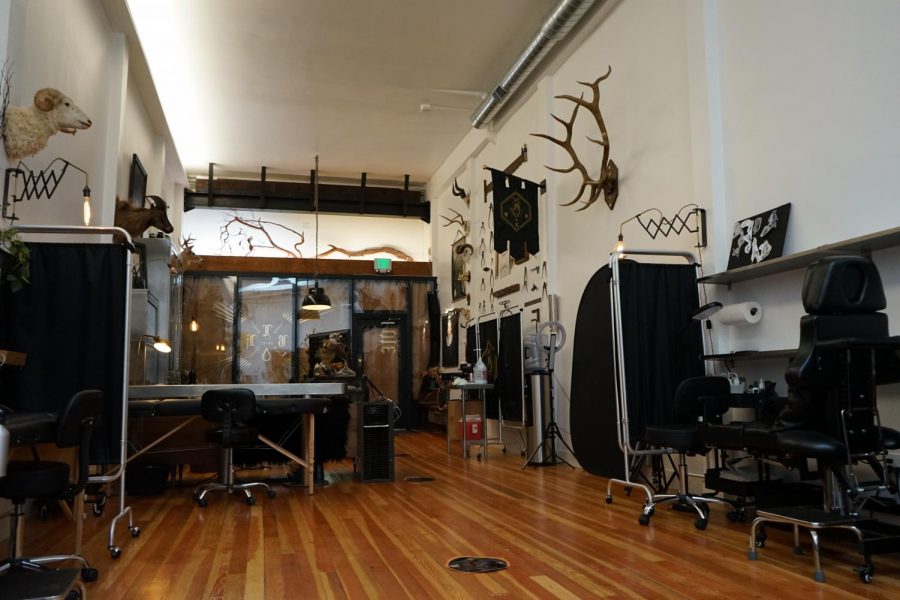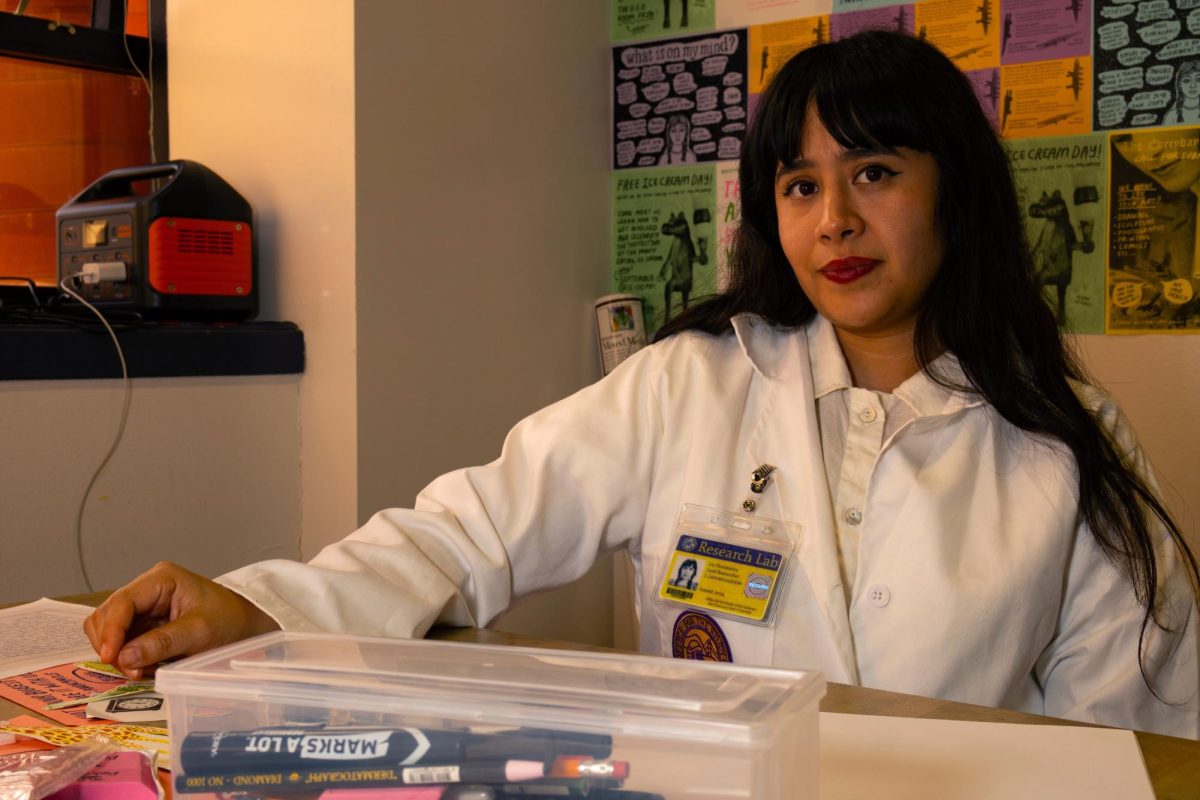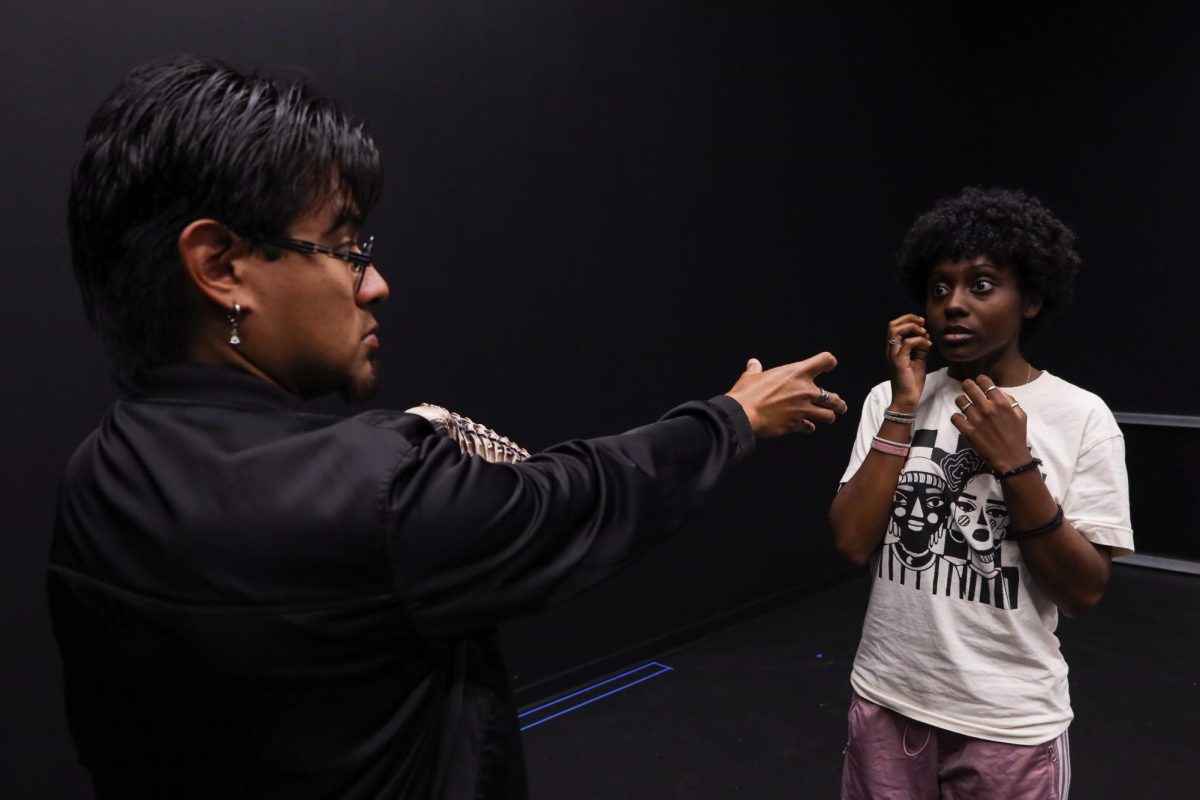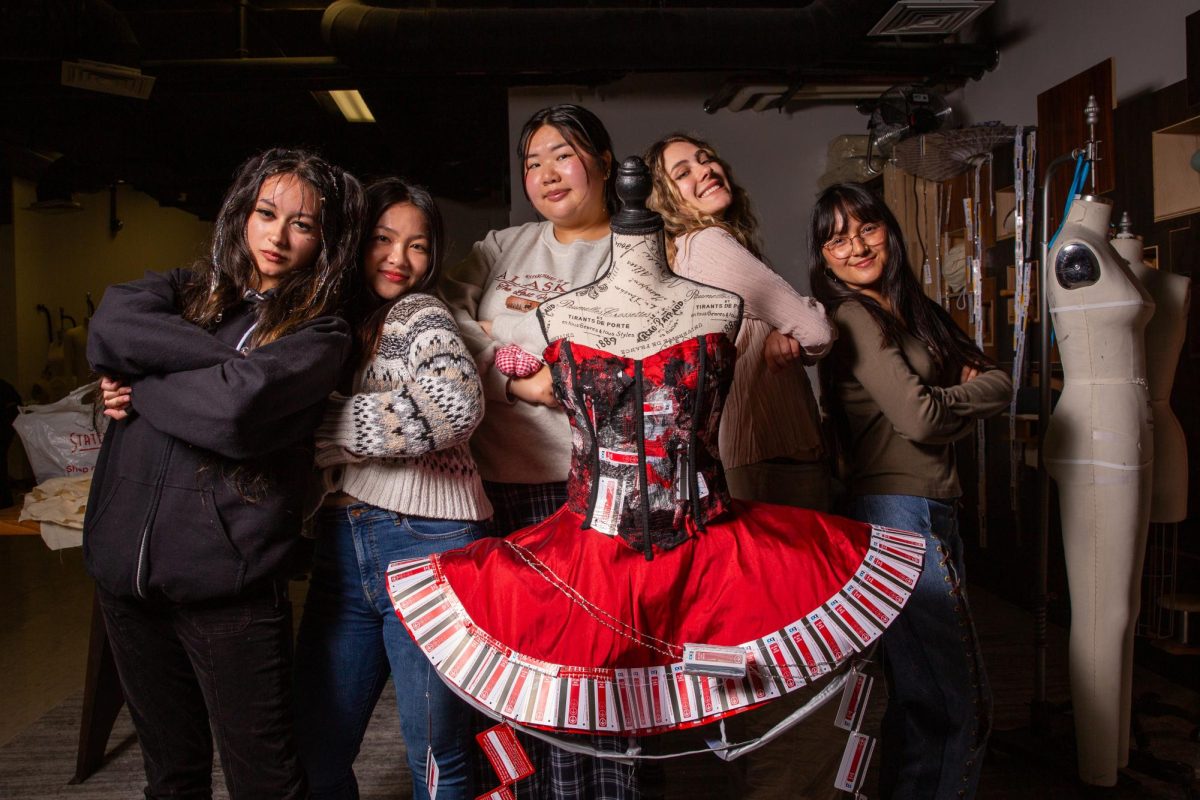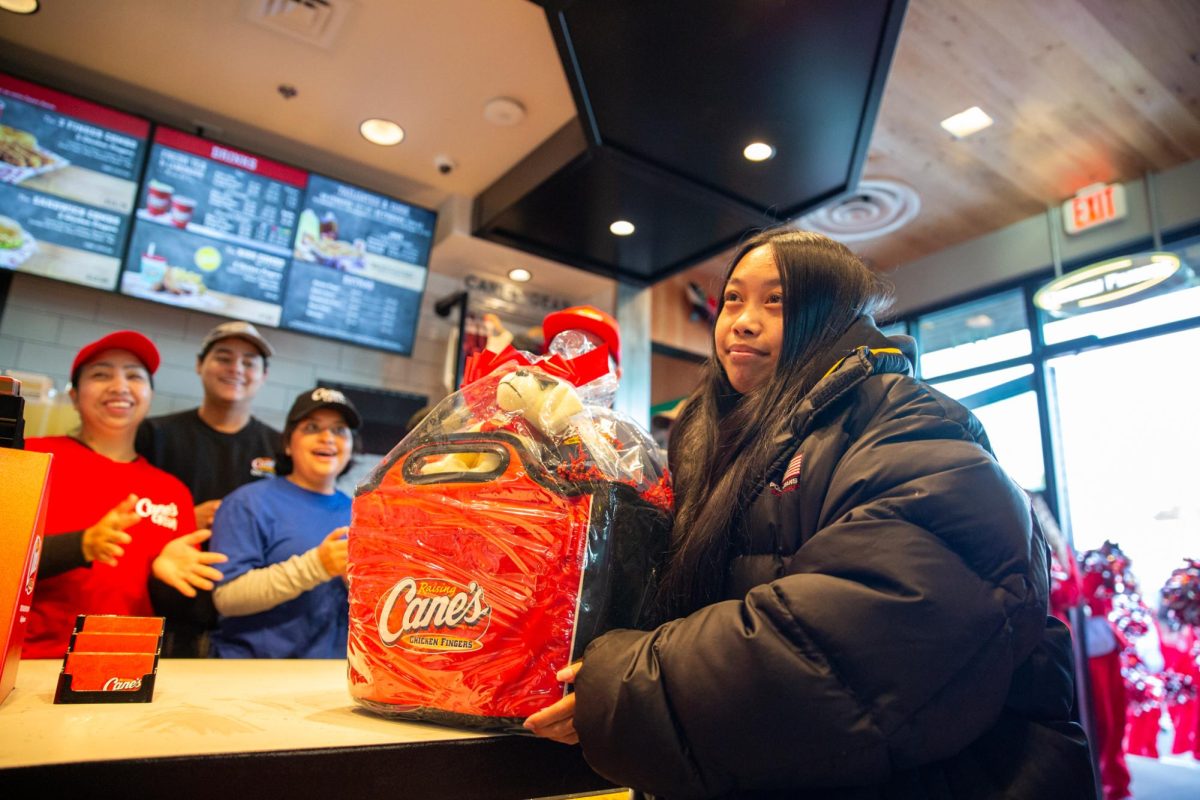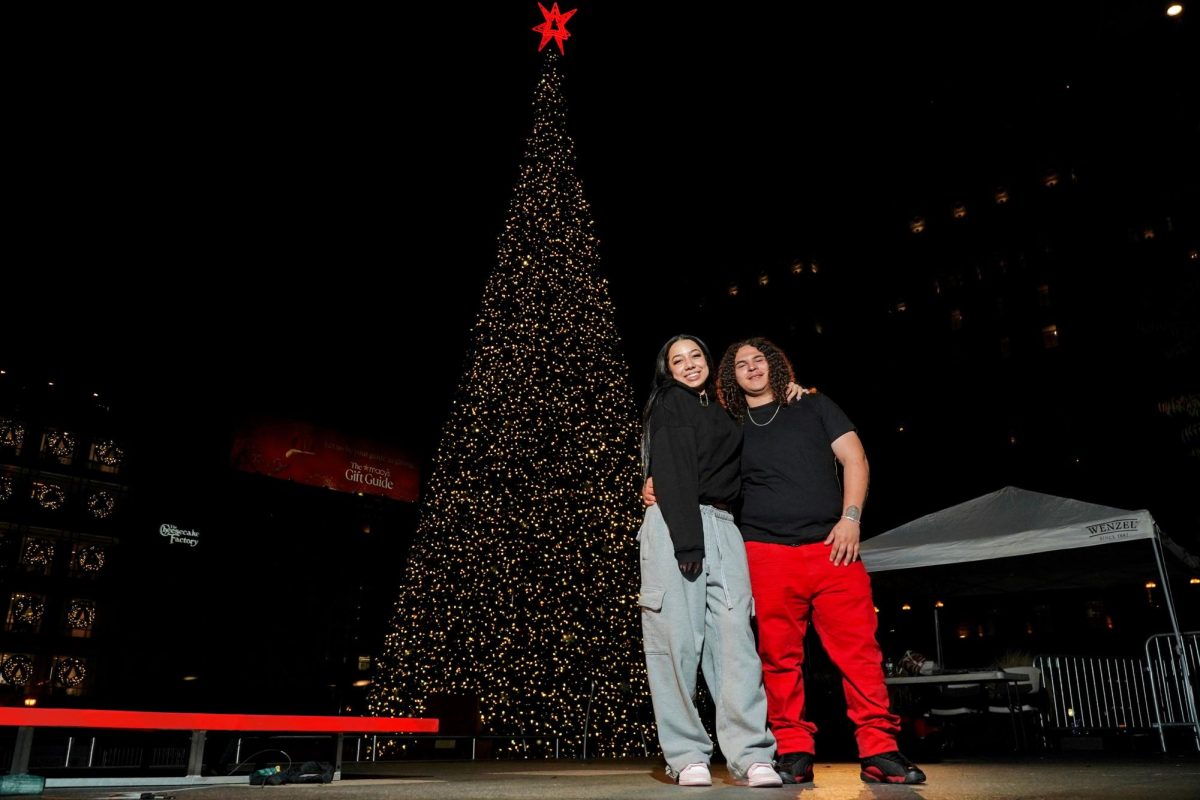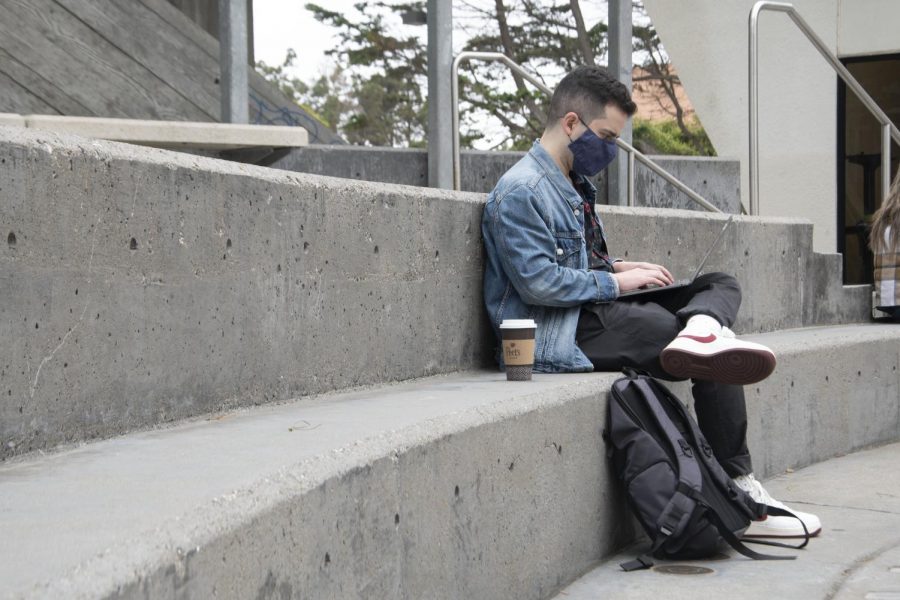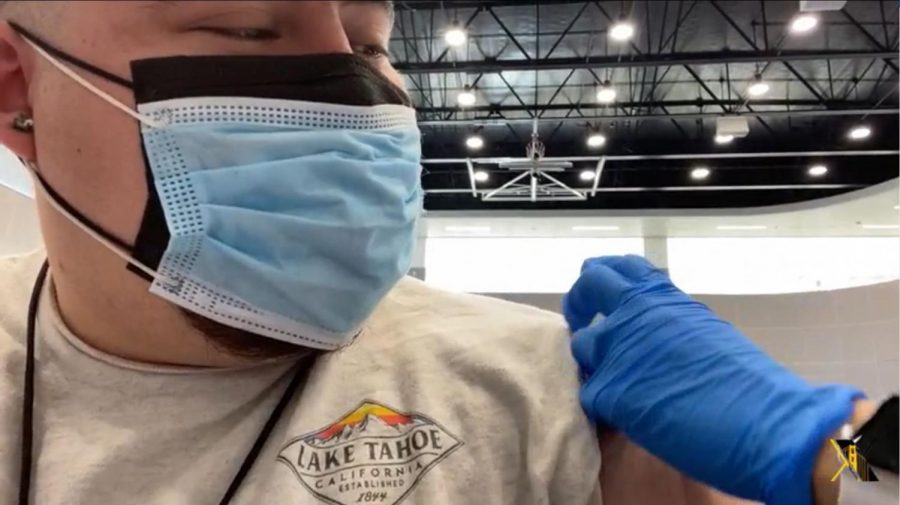When Mayor London Breed mandated closure of tattoo shops many artists wondered how they were going to support themselves and their families. Shop owners feared losing their businesses altogether. As shelter-in-place regulations persist, members of the tattoo community are forced to reinvent their art and business models to remain financially solvent.
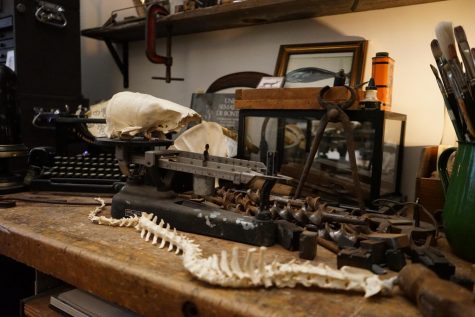
“We were forced to close March 13. It was really abrupt, but we saw it coming. It just happened so quickly,” Luke Stewart, owner of Seventh Son Tattoo in SoMa said. “We shut down with the expectation of being closed for maybe a month, but then it turned to two, then to three months. And now we’ve been closed for almost four months.”
One strategy tattoo parlors have utilized is through social media as a means to market their artistry and earn money as their stores remain closed.
“We did a series of raffles on Instagram where each artist painted a small postcard size piece, and the winner got 13 original paintings from all the artists at my shop,” Stewart said. “We got an amazing response from that and were able to raise a good amount of money.”
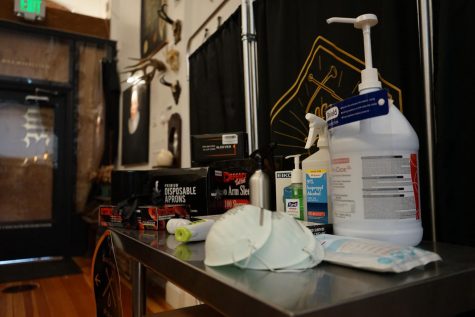
Jess Koala, an SF State alum, has tattooed at Castro Tattoo on 17th Street for two years. When Castro Tattoo started to struggle financially due to lockdown regulations, Koala and her coworkers began designing shirts to fundraise for the parlor.
“We sold over 200 T-shirts,” Koala said. “We also started a GoFundMe page. Many of our clients have been donating, which is super helpful.”
Artists at Castro Tattoo have also painted storefronts throughout San Francisco to raise money for themselves and to help decorate the city during pride month.
Although the fundraisers and donations help shop owners pay rent, businesses are still immensely struggling.
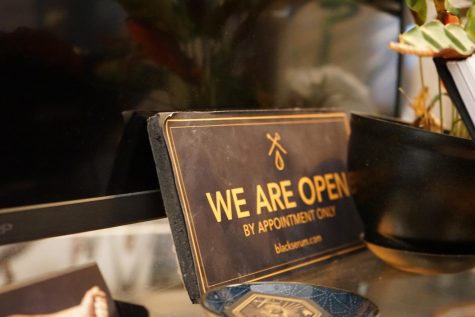
“I’m so far behind with my finances having been closed this long,” Stewart said. “Getting back to work is really going to be like playing catch up for months.”
Haley Adams, owner of Castro Tattoo, struggles to pay her parlor’s rent despite receiving grants from the Small Business Administration (SBA).
The SBA is a government agency that offers support to smaller entrepreneurs and business owners. Because small businesses have taken a financial hit due to the pandemic, the SBA has provided loans and grants to struggling shop owners who are unable to make a significant amount of money during this time, such aslike tattoo parlors. However, many of the loans and grants given are not enough to pay for the cost of business in a city such as San Francisco.
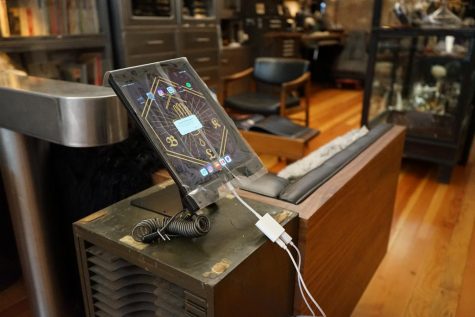
“The SBA gave us around $3,000,” Adams said. “That’s not even enough to cover a month of bills in a San Francisco tattoo shop.” The average cost of rent in the city is $3,629.
For other tattoo parlors in the city, loans, fundraisers and donations were not enough. Some tattoo shops were forced to close their businesses permanently due to the financial burden of shelter-in-place regulations.
“Shops have just shut the doors permanently because the bills keep coming,” Stewart said. “And I think one of the most frustrating things about all this has been a lack of financial aid from the government.”
Since the beginning of June, the tattoo community in San Francisco has fought for shops to open up sooner rather than later in hopes of bringing in some income.
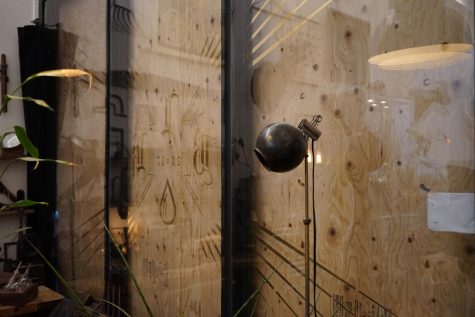
Idexa Stern, an artist that specializes in geometric and organic shape tattoos, has owned Black and Blue Tattoo on Guerrero Street for 25 years. Stern, along with many other tattoo artists, partook in organized events advocating for the reopening of parlors last month.
“We all came together as a big group of tattoo artists in San Francisco, and we actually fought for getting an earlier opening date,” Stern said.
Tattoo parlors were originally told that their reopening date would be in mid-August. After protesting the tattoo community received a reopening date of June 29, but a few hours after that date to reopen was announced the plan was revoked due to the increase of COVID cases.
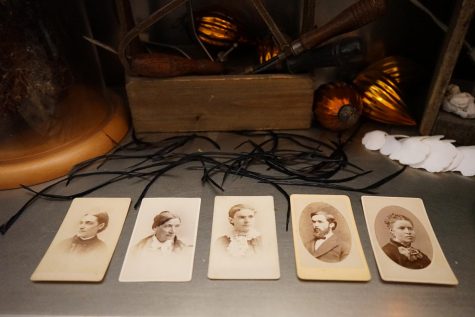
Brucius Von Xylander, owner of Black Serum Tattoo on Valencia Street feels that this has all been a ride on an emotional rollercoaster.
“It’s a bit of a yo-yo feeling,” Xylander said. “We were told we had to wait, and then we were told we could open soon, and then that we had to wait again.”
Xylander’s business has held a series of raffles throughout the shelter-in-place order in hopes of raising a sufficient amount of money for his shop. Most prize winners got Black Serum T-shirts. First place will receive a tattoo from Xylander when regulations are lifted. The parlor’s artists have sold original paintings from its website as well.
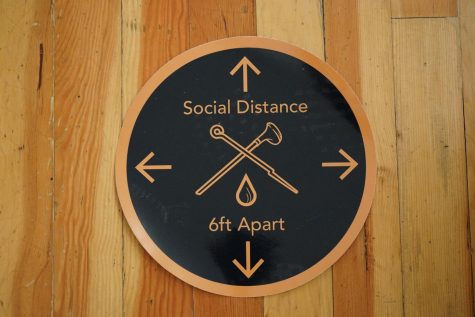
Although tattoo shop owners and artists are eager to get back to work, there are undercurrents of hesitation.
Sarah Ko, an SF State alum, who specializes in black and gray fine line tattoos and has been tattooing for nearly four years, shares this hesitation.
“It’s scary, and we don’t want to rush back to work because tattoo artists do have to be very intimate with their clients,” Ko said. “Right now, we don’t have the resources to guarantee the safety of our clients.”
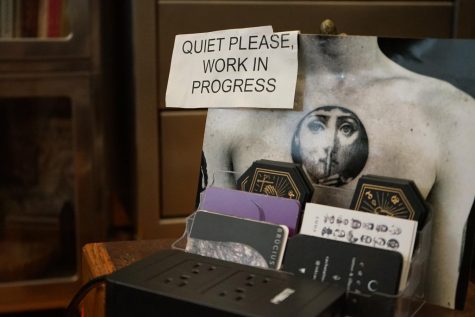
Getting a tattoo during the pandemic is considered high-risk because of the constant physical contact between the artist and the client. As the process of reopening shops continues, tattoo parlors are grouped together with nail salons and hairdressers, all of which require close physical contact in confined spaces.
Although there is frustration, tattoo artists and business owners are excited to get back to work– whenever that may be.
“I’m not drawing or painting nearly as much as before,” Koala said. “So I’m definitely eager to go back to work.”
